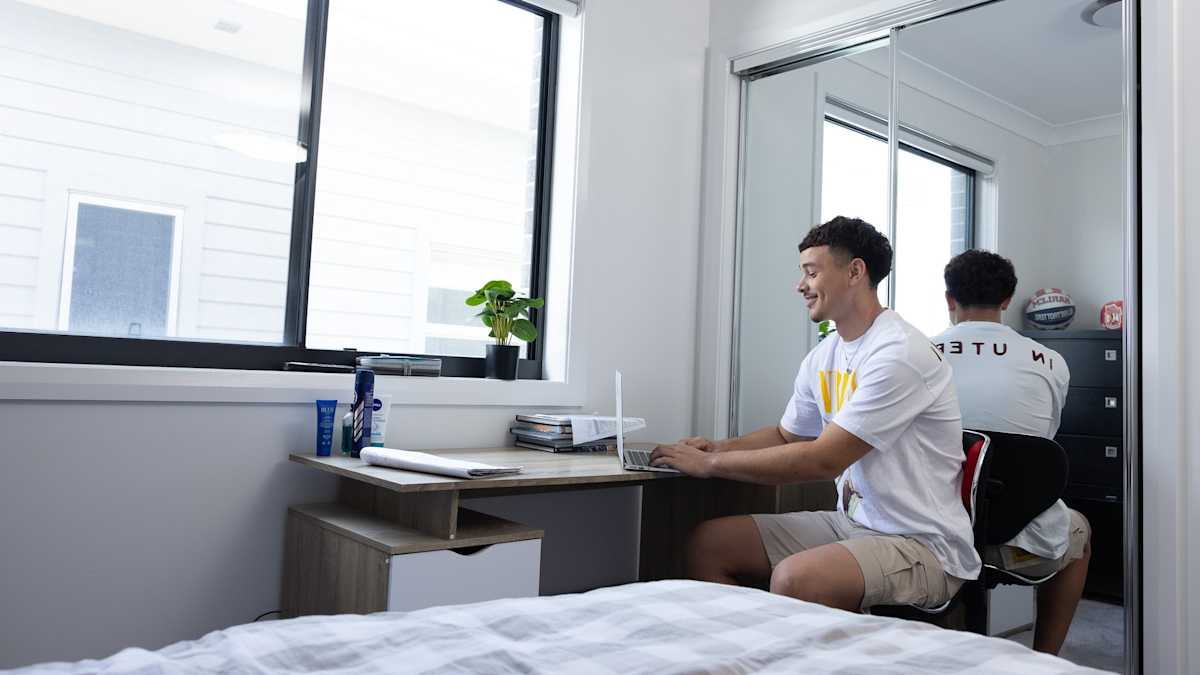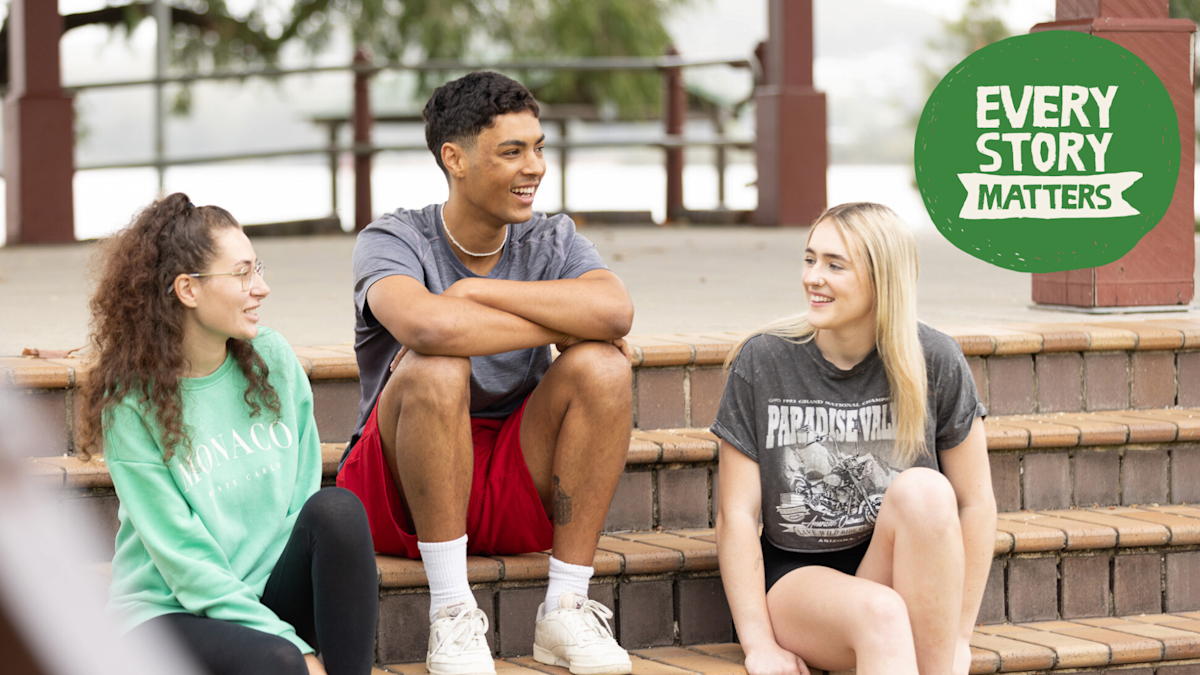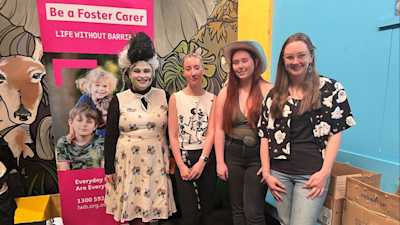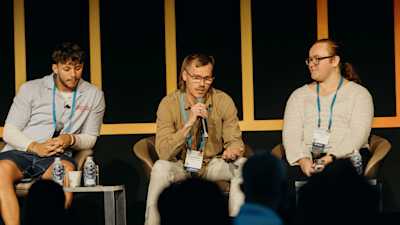Young voices shape future generations of young people in care.

Image: A teenage boy sitting at a desk, typing on a laptop.
Life Without Barriers is creating a more inclusive, transparent, and responsive Information, Communication and Technology (ICT) environment that will empower young people and address identified needs.
By incorporating the feedback and suggestions from a recent consultation with our National Youth Advisory Group, we aim to build an ICT infrastructure that fosters a sense of agency and connection among the young people in care.
Tara, Sam*, Lara and Malakai are members of Life Without Barriers National Youth Advisory Group, where young people engaged with senior leaders to co-design how services are designed and delivered. They recently took part in a consultation conducted by Deloitte, and their valuable feedback is now informing Life Without Barriers' Five Year Application and Data Strategy.
Tara, 19, said it is important to incorporate young people’s views in ICT development planning because “the technology that Life Without Barriers uses is a major part of how they support and protect young people in care.”
"Children and young people have the knowledge and experience to understand how technology can be used and they understand what will and won't work when it comes to developing an ICT blueprint."
It’s no surprise that the group, as members of the generation who did not know a world before smartphones, immediately grasped the benefits that technology can bring. They saw the pros and cons of AI and instant access to information, and the potential for reclaiming agency, self-advocacy, and engagement.
One of the first points the young people brought up was wanting access to their case notes, highlighting the importance of transparency.
"I have a right to review my personal information, especially after I turn 18. I cannot stress how important this is to me," said Lara, one of the participants.
In the consultation, the young experts with lived experience discussed general challenges, such as the frustration that their workers had to wait for team leaders to make 'every day' decisions, and more specific ones, such as the difficulty in accessing contacts outside their immediate care team. Everyone in the group expressed the importance of easier access to important information.
"When I was in care, what would have made life better was to have an online portal where I could find useful information like how to contact my caseworker or my therapy appointments," said Lara.

Image: Three young people sit together on a set of stairs at a park. Every Story Matters - Logo.
"What would be good is to be able to see staffing rosters. I often feel anxious when I am with someone I don’t know well. I know sometimes that can’t be helped, so being able to see rosters through a portal would help me prepare," said Sam.
"There are some care workers who I feel more comfortable with. I’d like to be able to put in my preference for my residential care worker," said Sam.
Tara said that technology would help young people have a say by giving real time feedback about their care.
"The online portal could have a feedback function that will notify people in Life Without Barriers who need to follow up and come back to us about our feedback. And also the option to do it anonymously too," said Tara.
When the topic of using technology to connect to other young people in care within Life Without Barriers was raised, the group became quite excited.
"It would be great to connect to others who have similar life experiences as me through a portal within a monitored forum."
"And Life Without Barriers can connect with us too, you know – like ask us questions and let us be a part of decision making," said Lara.
The group also advised that all the benefits that technology may offer do not replace interpersonal communication.
"Technology can make life easier, but it does not replace the human connection. Yes, it’s great to have reminders and automated SMS or whatever, it’s in addition to, not instead of, having someone in real life reaching out to you," said Lara.
Ian, Life Without Barriers’ Chief Information Officer, noted that drawing on their experiences, the young people opened our eyes to how the right use of technology can allow others in care to feel more empowered, respected, and connected.
Read more stories just like this one in the Life Without Barriers 2023-2024 Annual Report.
A person's story is precious. We take storytelling seriously. Sometimes people are able to tell their own story, and we love that. We always make sure they give us their ok, and we will always honour the trust placed in us to bring their story forward. *Names have been changed to protect the children and young people in this story.


